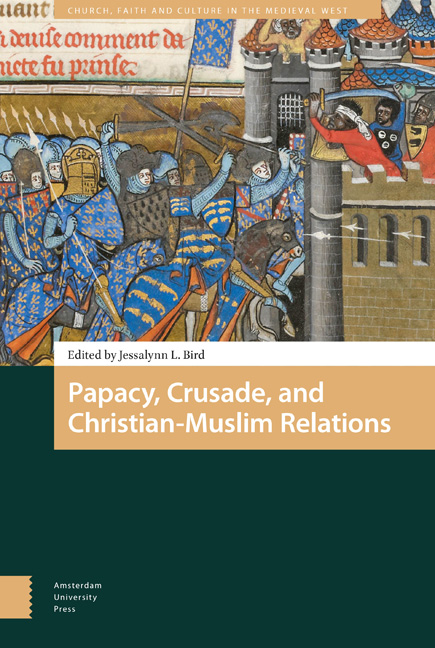7 - The Preacher and the Pope: Jacques de Vitry and Honorius III at the time of the Fifth Crusade (1216–27)
Published online by Cambridge University Press: 22 December 2020
Summary
Abstract
This contribution focuses on the hitherto neglected interaction between Jacques de Vitry, bishop of Acre between 1216 and 1229, and Pope Honorius III. Whilst Jacques's letters from the East addressed to Honorius have been discussed extensively by scholars, the reports of Jacques's activities in the Latin East have not yet been linked to Honorius III's decision-making. By looking at the papal correspondence with the Latin Church officials of Outremer, and the letters addressed to the bishop of Acre in particular, it is possible to reconstruct at least some of the interaction between the preacher and the pope. I intend to show that Jacques served as a key envoy in the East, actively reporting on the situation there to Honorius III while representing the papal interests among the religious and lay leaders in the Latin East and on the Fifth Crusade.
Keywords: Jacques de Vitry, Honorius III, episcopal letters, Fifth Crusade
Introduction
On 17 July 1216 the Champenois crusade preacher, Jacques de Vitry, reached Perugia expecting that Innocent III would confirm his appointment as bishop of Acre. Jacques arrived, however, only to find that Innocent had died the previous day. Gazing upon his almost naked and decomposing body (‘corpus fere nudum et fetidum’), Jacques contemplated the brevity and treacherous vainglory of the world. With these words, Jacques alluded to the words frequently used by Innocent himself, and revealed his admiration for the late pope. Unexpectedly, however, it was Innocent's successor, Honorius III, who confirmed Jacques's appointment and sent him eastwards. Although Honorius's pontificate has traditionally been regarded as ‘simply an echo of that of his great predecessor’ and while Innocent III certainly has received the most scholarly attention in the past few decades, Powell's work and recent research by Smith and Claverie6 on Honorius III and the Latin East has provided convincing evidence, not only for an active continuation of Innocent's reform and crusade agenda, but also for Honorius's own responsive decision-making and how his policies were generated from a close interaction with legates and nuntii. This contribution focuses on the hitherto neglected interaction between Jacques de Vitry and Honorius III.
- Type
- Chapter
- Information
- Papacy, Crusade, and Christian-Muslim Relations , pp. 131 - 154Publisher: Amsterdam University PressPrint publication year: 2018



